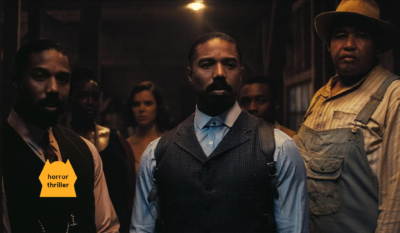Judas and the Black Messiah is an electrifying and contemplative biopic about Black Panther party chairman Fred Hampton and the plot to bring him down


Chloé Zhao makes Nomadland‘s melancholic but hopeful story of nomads traversing the American West a stunningly complex character study of life on the margins of society.
![]()

Of the movies that have come out after last year's Black Lives Matter protests, Judas and the Black Messiah is perhaps the most essential. A raw and in the trenches look at the Black Panther party through the eyes of Fred Hampton (Daniel Kaluuya returning to Chicago after his incredible turn in Widows), the chairman of The Illinois chapter, and FBI informant William O'Neal (Lakeith Stanfield), director Shaka King's sophomore feature feels like a magnum opus.
That's stunning considering his last feature, which also premiered at the Sundance Film Festival, came out six years ago to little fanfare. However, what makes Judas and the Black Messiah so essential is its ability to switch between electric moments of rebellion against an oppressive system and quiet moments of beauty, sadness, and love in the movement.
ADVERTISEMENT
To properly communicate my feelings towards the movie, I have to talk about my very visceral reaction to watching it. In one scene after returning from prison for a throwaway charge, Hampton gives a speech to a packed church of party supporters. Kaluuya is brimming with emotion — happiness, pride, rage — as his onlookers cheer him on. I was shaking like I was in the room, unable to sit any longer.
In another moment, as Hampton is talking to the mother of his child, Deborah Johnson (played sensitively by Dominique Fishback). She recites a poem to him about the fear of bringing a child into this “war zone.” Not the war between the party and the cops, the war between the country and Black people. It's impossible not to ache physically. To feel empathetic for the experience of being Black in America.
ADVERTISEMENT
I'm writing this review immediately after watching the film and I'm having trouble communicating what makes it work so well. It's above plot and above character. It's a feeling. It's purely human. Even O'Neal, seen as a traitor to many, is humanized. However, as Stanfield put in the post screening Q&A, that humanization isn't meant to explain away his behavior. It's meant to show us he felt guilty, but did what he did anyway.
Judas and the Black Messiah is perhaps the closest I've gotten in this long quarantine to feeling engulfed by a film like it is to watch one in a theater. It's oscillation between electric moments of genre storytelling — thrilling moments of action — and quiet introspective studies of character keep you spellbound. That's the word I've been looking for this whole review. It's a spellbinding movie. One that will be studied for years to come.
ADVERTISEMENT
More movies, less problems
- Jordan Peele Unleashes the First Trailer for ‘HIM'
- ‘Sinners' is the best movie of the year | movie review
- Romantic sci-fi thriller ‘The Gorge' hits its mark | movie reivew
Hey! I'm Karl. You can find me on Twitter and Letterboxd. I'm also a Tomatometer-approved critic.
💌 Sign up for our weekly email newsletter with movie recommendations available to stream.
ADVERTISEMENT
💌 Sign up for our weekly email newsletter with movie recommendations available to stream.
ADVERTISEMENT
Hey, I'm Karl, founder and film critic at Smash Cut. I started Smash Cut in 2014 to share my love of movies and give a perspective I haven't yet seen represented. I'm also an editor at The New York Times, a Rotten Tomatoes-approved critic, and a member of the Online Film Critics Society.

